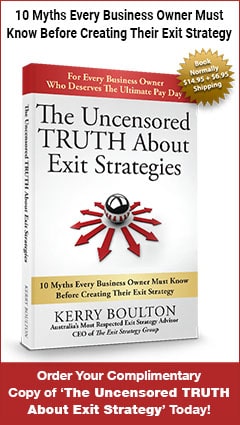Interview with Glenn Hartas
Rising life expectancy carries the promise of a long retirement, but for many, retirement can lead to a loss of identity, loneliness, and a lack of purpose. If you walk out the door on that last day of work haven’t given some thought to what you’re going to do with the rest of your life, then you can find yourself becoming depressed and sitting around in a rocking chair, so to speak, waiting out the rest of your life.
You need to think about what you’re going to do after you’ve finished working. Given the aforementioned rising life expectancy, we’re really talking about what we could be facing every day into our 80s and 90s. That’s a long time!
A retirement exit plan is simply giving some real consideration to what you’re going to do once you’ve retired. Obviously, this is somewhat dependent on the amount of money that you have. If you’ve been a business owner and you’ve managed to sell your business and have some money, you’ll tend to have wider options in taking time to decompress and enjoying some rewards.
If you’re in a traditional family situation, you may have a spouse that worked and a spouse that was at home. If you’re both working, you’re probably leaving your careers at different times. This can be colloquially called “the CEO at work, CEO of the house” syndrome.
This can lead to conflict when the second spouse retires and tries to become “the CEO of the house.” Unfortunately, statistics indicate that some couples turn to divorce in such instances. Couples facing retirement where both have worked need to give some thought as to how they’ll make their lives in retirement compatible.
One couple had been very successful running a business together and sold it a couple of years ago, when they were only in their late 40s. They found that they had to rethink their entire lives because although they now had each other and that was very nice, the children were still off at boarding school and they still had practical family issues to deal with on a regular basis. They also discovered that they needed to work out how to be with each other again, the same way they would if they’d retired in their 60s.
The more time you can give yourself to plan your retirement, the better off you’ll be. If you can start thinking about it realistically, even if you’re already in the 50+ range, then start to give it some thought. Think specifically, not only with regard to your soft skills and how you may apply them, but also financially.
If we’re going to be fortunate enough to have half our lives in front of us when we retire, we should start thinking about that now and putting in place some ideas as to what we’d like to do, what our timing should be regarding our goals, when we can realistically retire, and start planning for it.
It’s never no “too soon” and it’s never “too late” either.



Recent Comments